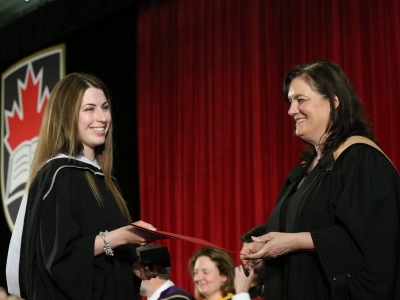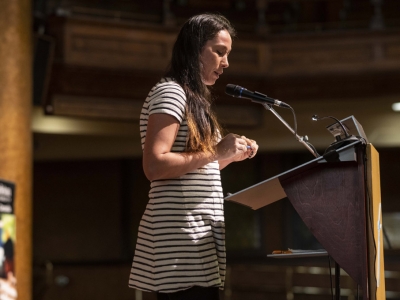By Elizabeth Kane and Alyssa Tremblay
Photos by Matthew Murnaghan
“How we, as humans, reduce our undeniable contributions to climate change and how we adapt to the forces we’ve already unleashed is perhaps the greatest challenge we’ll face in our lifetimes.”
These words from Carleton University’s Interim President and Vice-Chancellor Jerry Tomberlin underscored the importance of and set the tone for the second annual Carleton Challenge Conference, a day-long gathering designed to bring together business, government, academic and community leaders who are driving innovation.
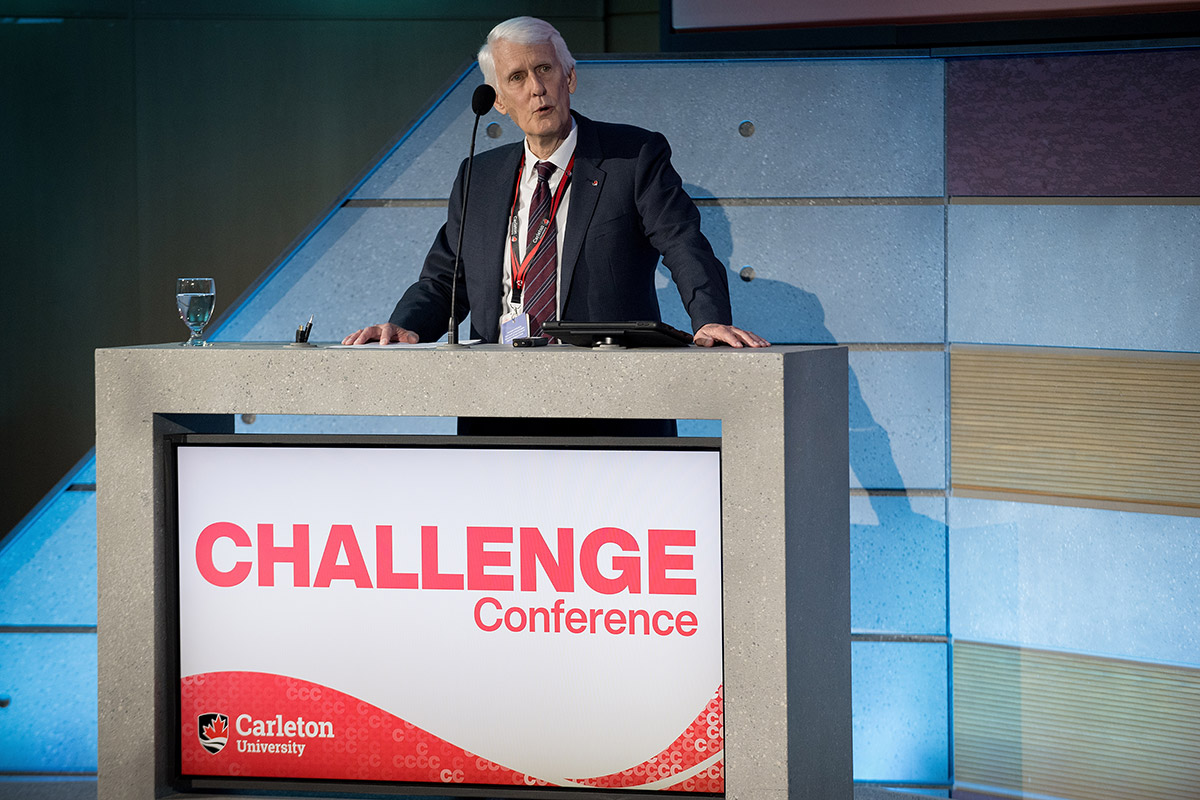
Carleton University’s Interim President and Vice-Chancellor Jerry Tomberlin addresses the audience
“The science on this matter is clear and has been for many years,” he says. “We need to act fast in order to slow down and eventually reverse the devastating effects of climate change on our environment, our economy, our homes and our health before it’s too late.”
Tomberlin explains that the ambitious topic was chosen not just for its immediacy and relevance, but because “creating a sustainable environment is central to who we are and what we do at Carleton.”
“Carleton researchers are working at the very forefront of climate innovation.”
As Canada continues to work towards its commitment to achieving net-zero emissions by 2050, Canadians across the country are now more than ever experiencing the effects of climate change firsthand: deadly heatwaves, smoke-choked skies due to wildfires, flash flooding, tornado warnings and more.
But while the challenge itself may be daunting to consider, the road to a prosperous and sustainable future is clear. What’s needed now more than ever are leaders with the drive to take these crucial steps towards transformative change by implementing climate solutions, strategies and policies.
In a day packed with panel discussions, speeches and networking opportunities in Carleton’s Richcraft Hall, an impressive roster of invited speakers – including several Carleton researchers – shared their experiences and insights around some of the biggest questions posed by climate change: How do we build a greener economy? What makes a city climate resilient? When it comes to environmental policy, where should Canada go next?
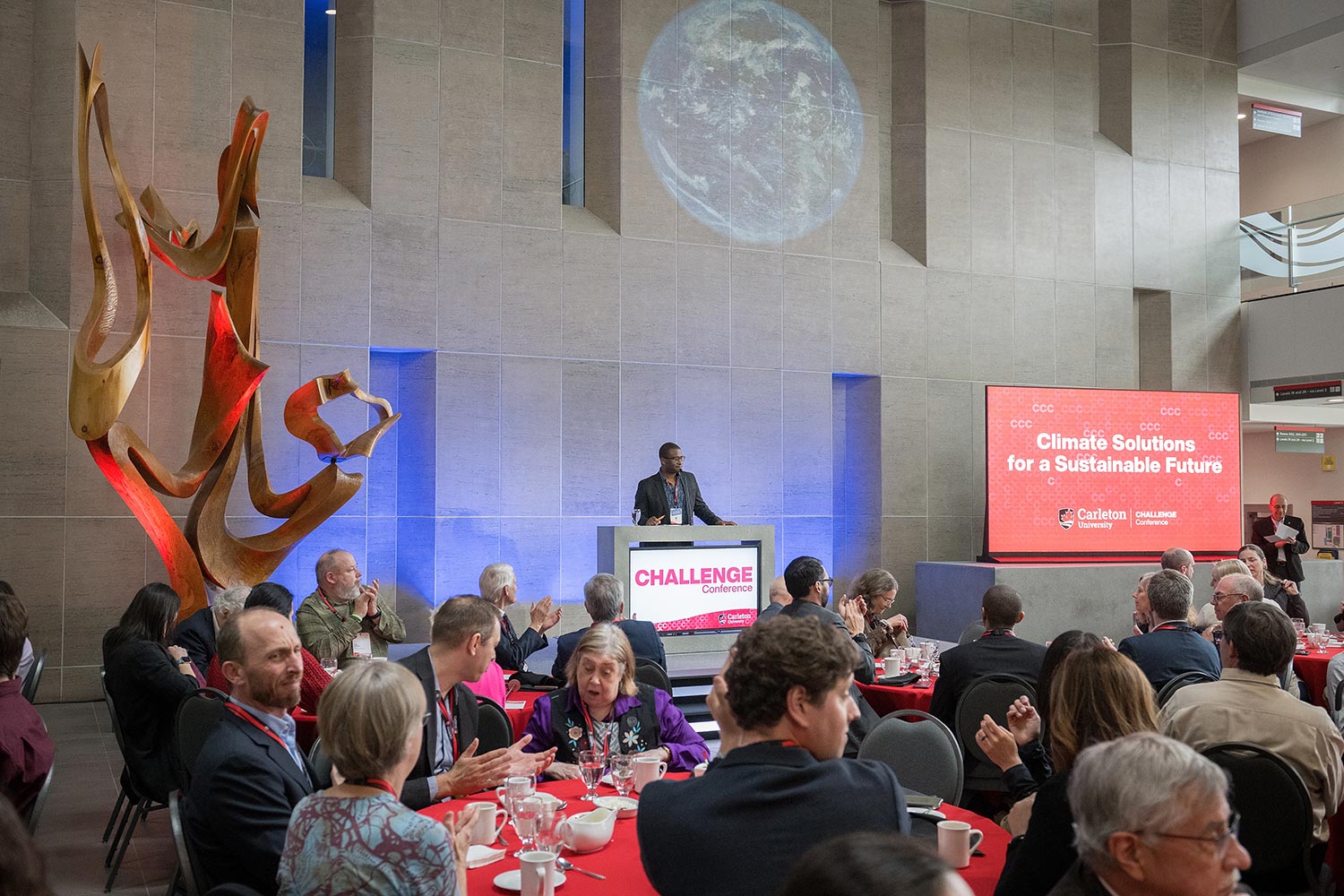
Acting on the Challenge of Climate Change
The conference kicked off with an opening keynote from James Meadowcroft, Academic Director of Efficiency Canada, and Chancellor’s Professor in Carleton’s School of Public Policy and Administration.
“The problem is complex, but it’s also really simple,” says Meadowcroft. “Often we don’t say the simple things.”
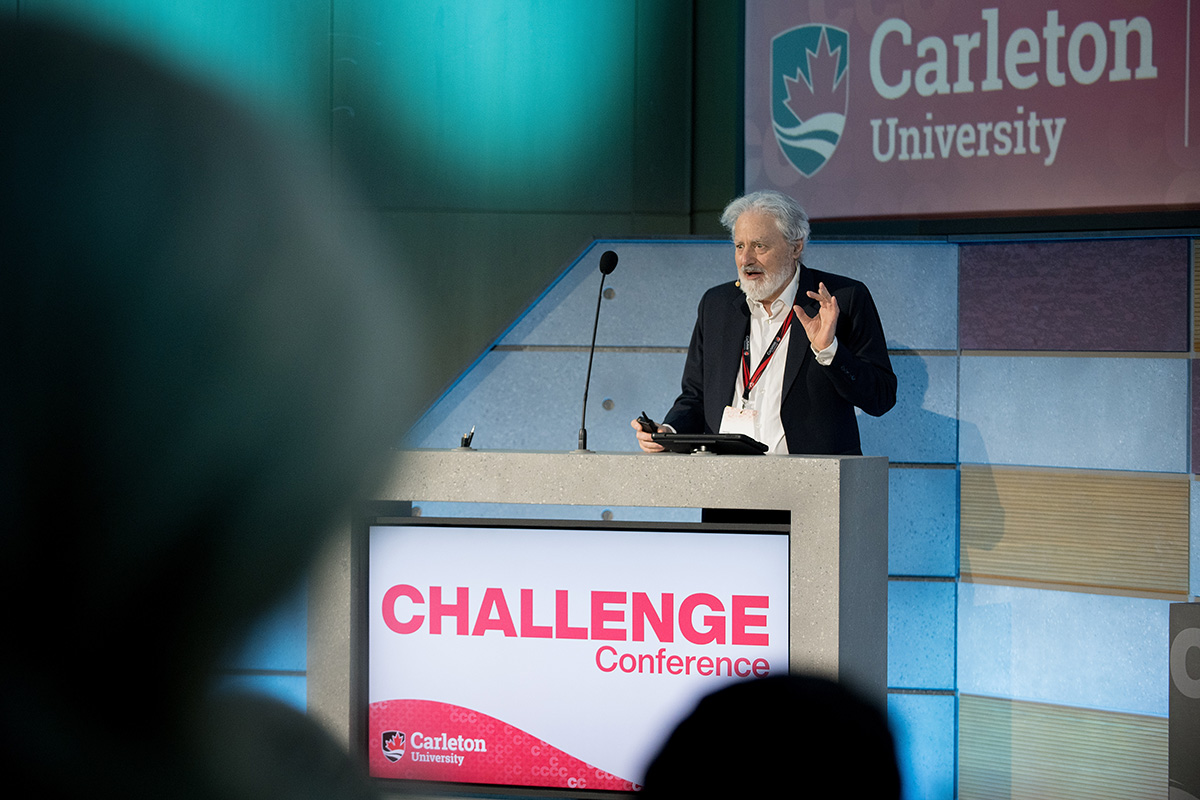
James Meadowcroft delivers a keynote speech at the Carleton Challenge Conference.
One of Meadowcroft’s key insights is we need to move away from talking about climate change as a short-term pollution control problem, where reducing our emissions over time by a certain percentage will solve everything. This approach, he argues, misunderstands and grossly underestimates the seriousness of the crisis at hand.
“What we actually need to do to prevent continuous climate warming is to stop putting greenhouse gases into the atmosphere all together and find ways to draw down any gases we can’t – whatever goes up, we’ve got to take down somehow,” he explains. “This is what we mean by net zero.”
Complicating this goal is the reality that the three largest sources of emissions are our fossil-fuel dependent energy sector, animal-based agriculture and the use of nitrogen fertilizer on crops and building materials – particularly steel and concrete – that release greenhouse gases when produced.
This means that to stop climate change and arrive at net zero, we need to radically transform our major systems of production and consumption: how we move people and goods, how we grow food, how we build our cities, how we make electricity, and so on.
“We need to be driven by the long-term, not the short-term. To achieve a sustainable future, we need more money, resources and policies put towards building new systems, rather than trying to fix old ones – otherwise we’re just wasting time.”
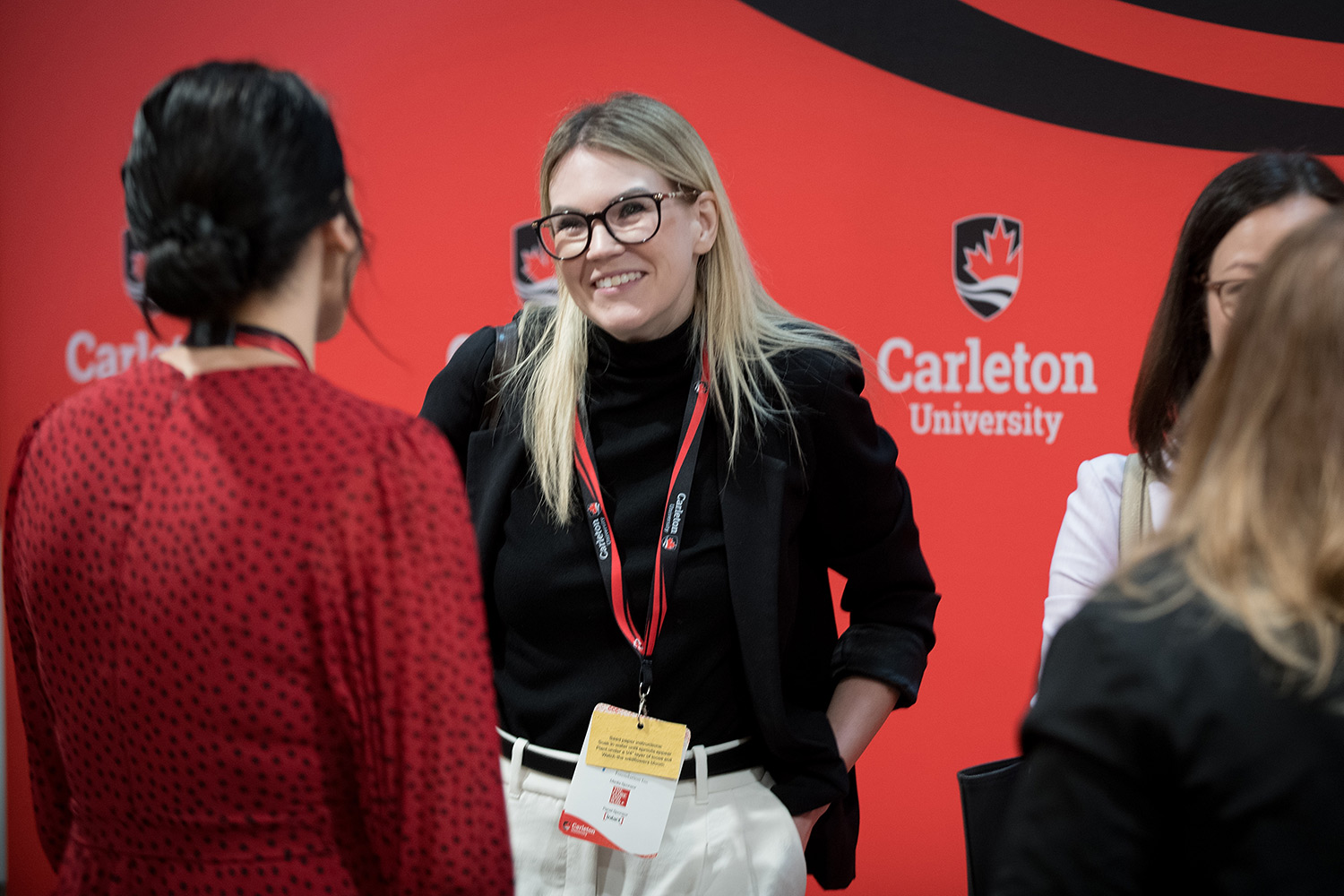
Panelists Share Expertise and New Perspectives
A series of panels throughout the day shared an immense depth of knowledge with the audience, discussing new ways of approaching climate change solutions and the need to take action now.
Julius Lindsay, Director of Sustainable Communities at the David Suzuki Foundation, noted the importance of reframing how we view nature – as a key stakeholder instead of a side character.
“It’s about prioritizing that as a part of the way we think about the world, the way we work through the world,” said Lindsay, explaining the importance of considering nature “as a full member of our society that has a seat at the decision-making table.”
Drawing from her experience in the industry, Carla Smith, Executive Vice President and Chief People, Strategy and Climate Officer at Intact Insurance, stressed the importance of investing in adaptation and resilience. To encourage that investment, she called for improving the public’s understanding of climate change.
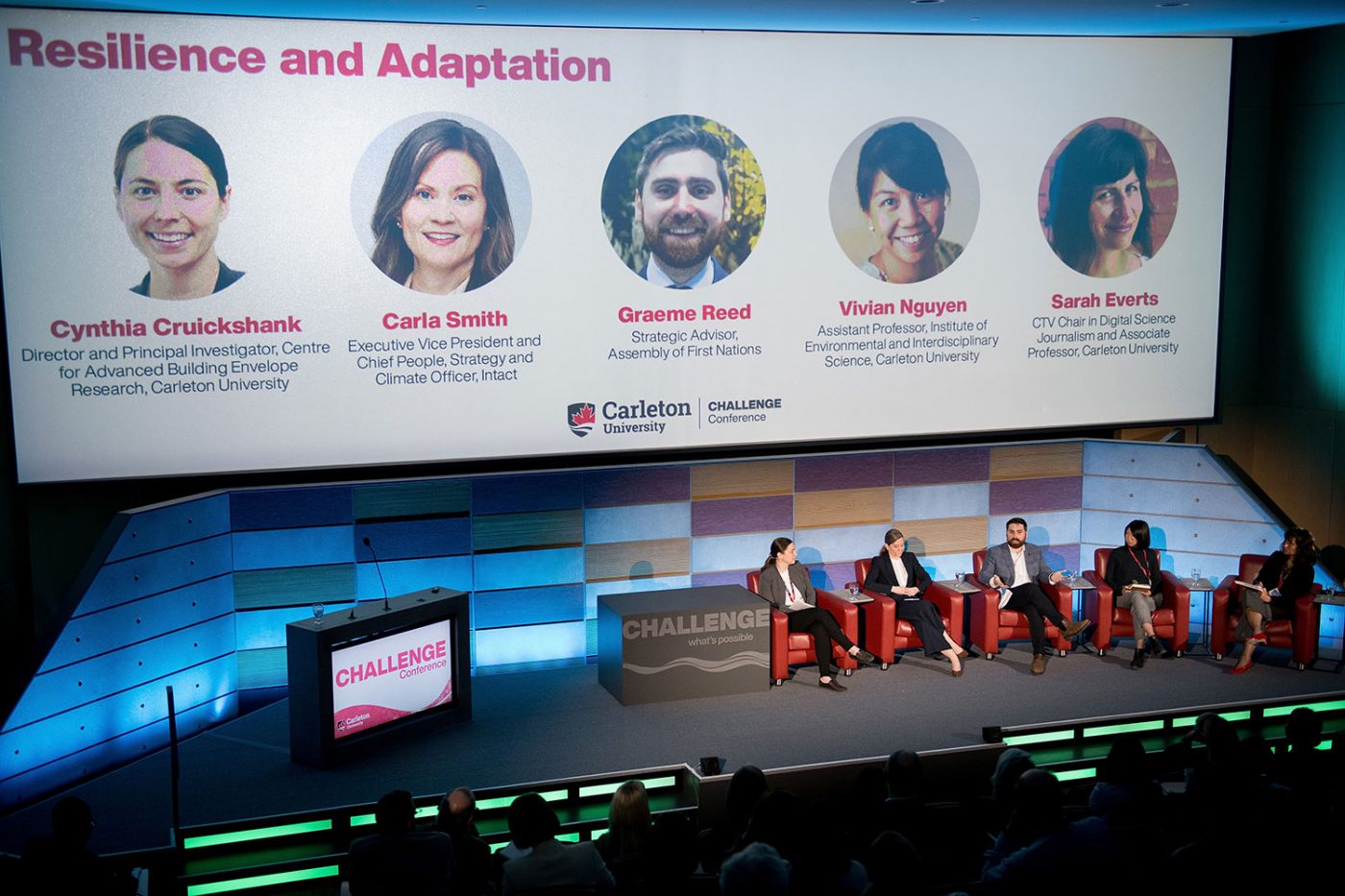
“People can’t care about what they don’t understand, and it can be a very technical subject,” she says, underscoring the need to demystify the issue to cultivate enthusiastic support for change.
“It is a really important part of motivating society towards what needs to happen in order to adapt.”
Graeme Reed, Strategic Advisor at the Assembly of First Nations, noted the importance of broadening the conversation and viewing climate change response as a spectrum. He explains how identifying the true cause of the problem goes beyond measuring emissions.
“The root cause is an imbalanced relationship with the land around us,” says Reed, noting the importance of exploring the multiple and intersecting solutions needed to help communities.
“How do all of these problems actually originate from that imbalance and that preoccupation with extraction,” says Reed. “That preoccupation with: How can we take, take, take from the natural world and expect it not to respond?”
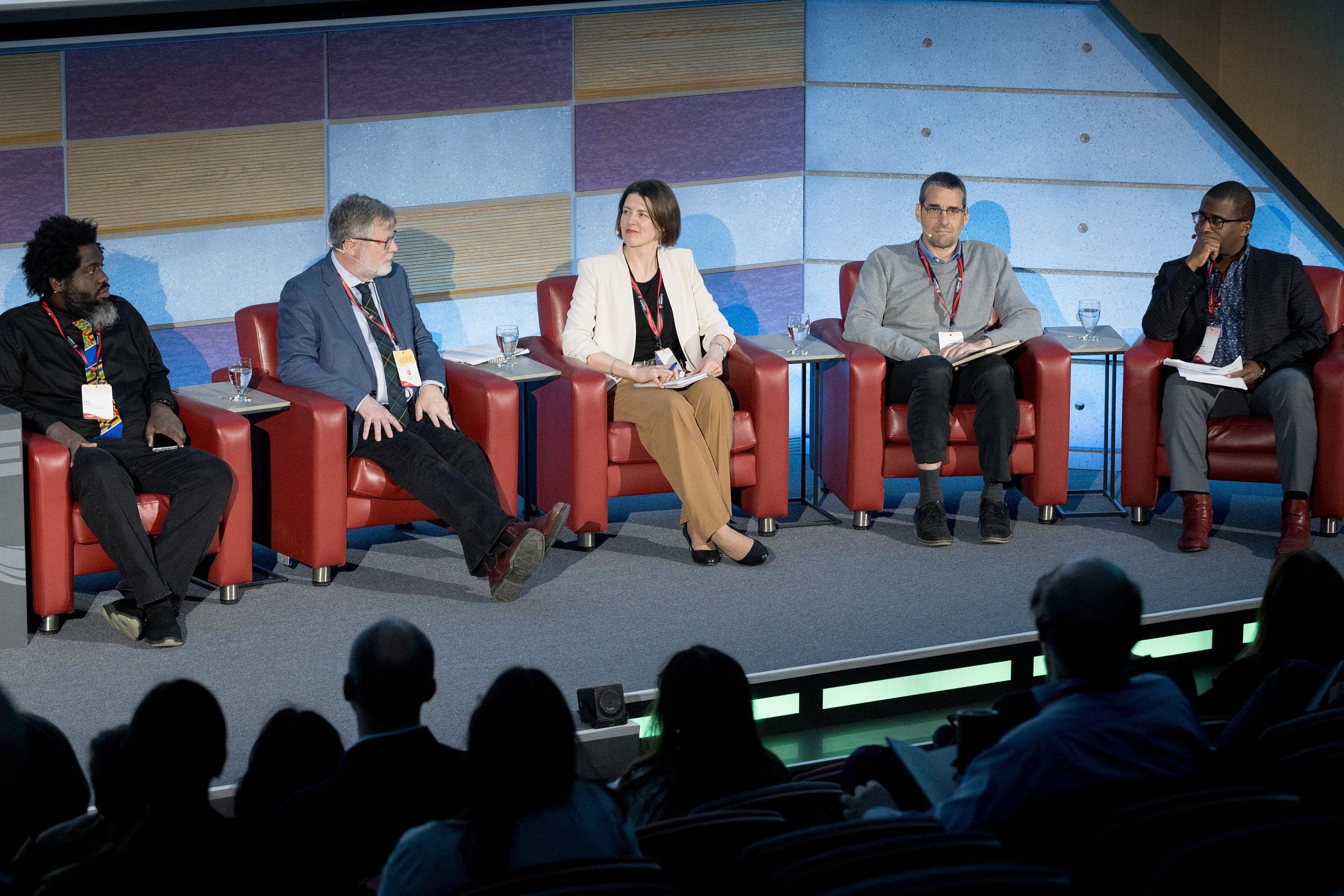
The Greatest Challenge of Our Lifetimes
“Everyone is affected by climate change,” says Elizabeth Beardsley, at her afternoon keynote address on “Leadership in the Face of Climate Change” given to a sold-out room of conference attendees.
“Leaders in every industry must do what they can to position their organizations for the future and help support this transition to a more sustainable world,” she says.
With over 25 years of experience working on environmental and climate issues both as an engineer and a lawyer, Beardsley is the Senior Policy Counsel at the U.S. Green Building Council (USGBC) – the global environmental non-profit best known for LEED, the world’s most widely used green building rating program.
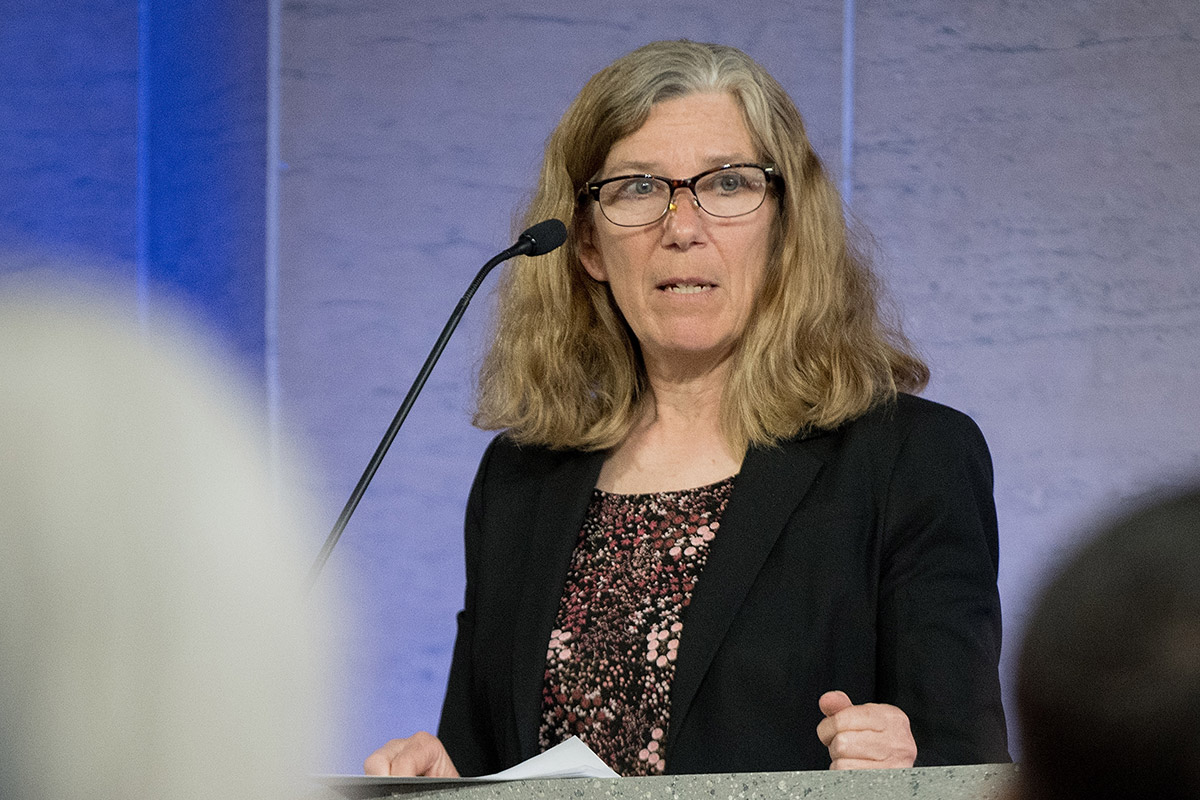
Elizabeth Beardsley delivers a keynote speech at the Carleton Challenge Conference
Her advice to leaders? Normalize decarbonization until it feels more natural to do things that reduce emissions than to cling to the status quo.
“Whenever a new project or policy is in development, the question should always be asked: Is this an opportunity to reduce emissions? Is this an opportunity to increase climate resilience?” she says.
This approach is necessary, Beardsley explains, if we want to accelerate climate action across the board to more effectively address the crisis in front of us.
“As leaders at this moment in time, our task right now is to grow momentum.”
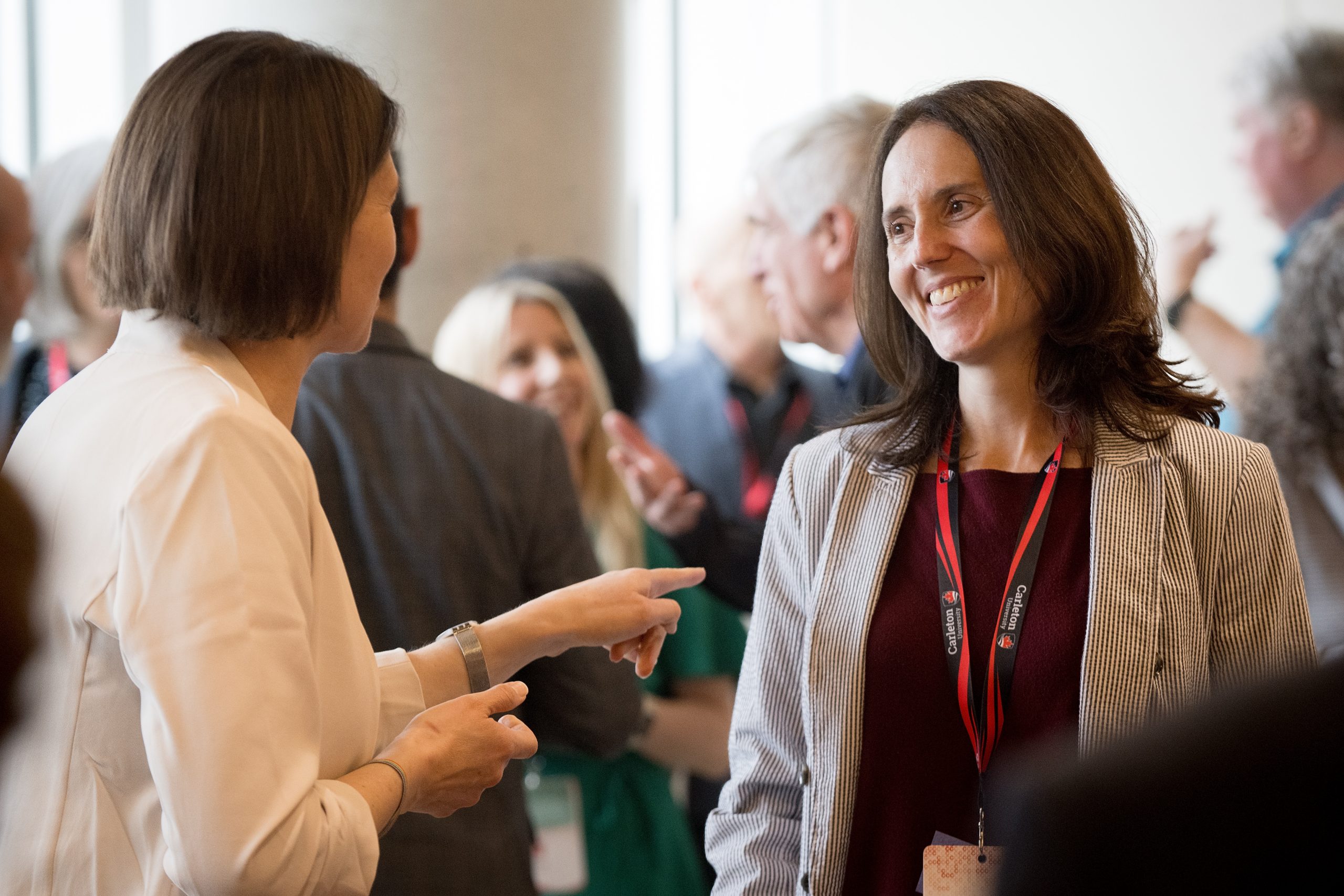
Monday, May 13, 2024 in Challenge, Environment and Sustainability, Events
Share: Twitter, Facebook

